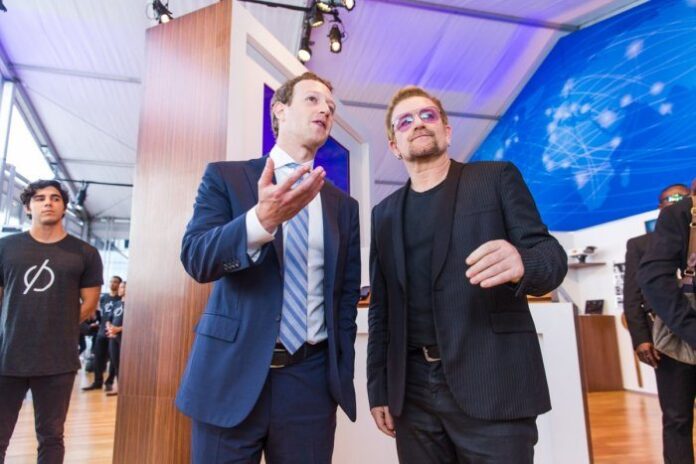Internet access is a key for economic development
Of the more than 7 billion people on Earth, more than half of them don’t have access to the Internet. Facebook CEO Mark Zuckerberg, along with U2 frontman Bono, want to change all that by 2020.
The duo laid out the situation and their hopes for the near future in an op-ed piece published Sunday in The New York Times.
“Today over half the people on this planet don’t have access,” they wrote. “That is not good for anyone — not for the disempowered and disconnected, and not for the other half, whose commerce and security depend on having stable societies. An unprecedented array of technologists and activists — from Mo Ibrahim to Bill and Melinda Gates, action/2015, Ushahidi and Sahara Reporters have come together to support a global Connectivity Declaration, pledging their support for the new global goals and connecting the world to opportunity. This needs to become a global movement. In this century, global development and global connectivity are closely linked. If you want to help people feed, heal, educate and employ themselves around the world, we need to connect the world as well. The Internet should not belong to only three billion people, as it does today. It should be seen as a necessity for development, and a tool that makes larger things possible.”
This position is very closely aligned with what the United Nations Broadband Commission for Digital Development laid out in the report, published Sept. 21, titled “The State of Broadband 2015.” The group found that 4.2 billion people, or 57% of the global population, don’t have regular Internet access.
“A large body of evidence has now been amassed that affordable and effective broadband connectivity is a vital enabler of economic growth, social inclusion and environmental protection,” the report noted. “Although global mobile cellular subscriptions will exceed 7 billion in 2015 (with nearly half of these subscriptions for mobile broadband), growth in mobile cellular subscriptions has slowed markedly. The total number of unique mobile subscribers is between 3.7 billin and 5 billion people (according to different sources), with some observers interpreting this as an indication that the digital divide may soon be bridged. However, the digital divide is proving stubbornly persistent in terms of access to broadband Internet, including the challenge of extending last-mile access to infrastructure to remote and rural communities.”
Zuckerberg and Bono wrote that connecting the unconnected will be challenging. Many places don’t have the appropriate energy infrastructure, with the duo calling for public/private partnerships.
“Where governments lay the foundation, the private sector can build,” the opinion piece stated. “More technology companies and entrepreneurs must take more responsibility. Silicon Valley should look beyond itself and act more on issues like education, health care and the refugee crisis. We challenge the tech industry to do far more for those most marginalized, those trapped in poverty, and those beyond or on the edge of the network.”
There are already a few ideas for providing ubiquitous connectivity. Google’s Project Loon would beam Internet down from specially equipped weather balloons, while Samsung has come up with a concept involving thousands of low-Earth orbit satellites.
Zuckerberg and Bono conclude: “All the global goals must be scored — but the goal of connectivity for everyone everywhere will surely hurry this game-that’s-not-a-game to its successful conclusion. Hurry being the operative word here.”

